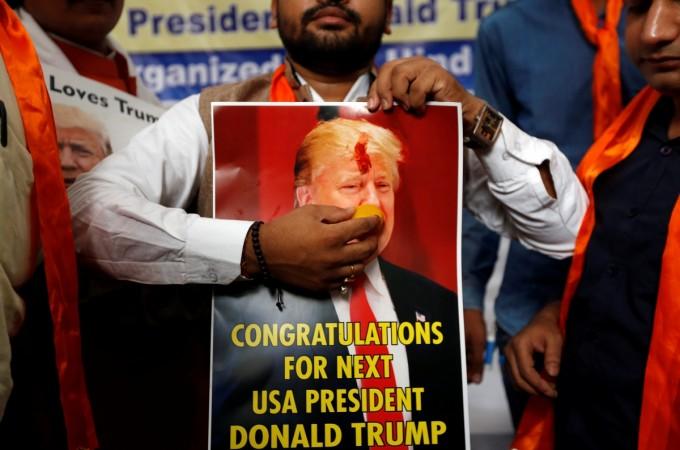
Everyone around the world is surprised at US voters' choice of having Donald Trump as their next president. But some countries seem to fear Trump more than his rival Hillary Clinton and her supporters. And one such country is Pakistan.
The fear in Pakistan is due to Trump being critical of both Pakistan and Muslims.
Previously, Trump had said in an interview with CNN anchor Anderson Cooper that Pakistan represents a vital problem for the US, due to its nuclear weapons. He even suggested the country get a "better hold of the situation."
Further, after the Lahore suicide blasts, he had famously claimed that he "alone" can "solve (radical Islamic terrorism) it." Once in 2011 he had said Pakistan was not a "friend of ours" and it has "plenty of terrorists."
These things might not go down well with the current democratically elected Pakistan government or the country's powerful army.
Moreover, Trump had also called for a "total and complete shutdown of Muslims entering the US," during the election campaign. Trump later had to tone down his anti-Muslim rhetoric and said that it would only be a "temporary ban."
Historically, Republican presidents have had good rapport with the Pakistan establishment, but Trump does not belong to the traditional Republican category. This would have the Pakistan government worried.
Trump's victory was celebrated by the far-right Hindu group, Hindu Sena in India. Trump during a campaign rally in October had famously said, "I love Hindu," while referring to Indians. There was also a campaign called Hindus for Trump, as part of the Republican Hindu Coalition. He had also said that US and India would be "best friends" if he were its president.
Added to this, US-Pakistan relationship is at new low since May following the killing of Afghan Taliban leader in Pakistani territory by a US drone.
Since the Uri attack by terrorists on an Indian Army camp, tensions between India and Pakistan have risen, with regular shelling by both the sides.
Though Trump has not laid bare his South Asia policy, he had earlier favoured keeping nearly 10,000 US troops in Afghanistan.
PM Modi was one among the first heads of the states to congratulate Trump, when he was declared president-elect.
"We look forward to working with you closely to take India-US bilateral ties to a new height," Modi said in a tweet.
"America will not abandon Pakistan, but definitely, Trump will be a tougher president than Hillary Clinton for Pakistan. I think India will have a better and smoother interaction compared to Pakistan," said Hasan Askari Rizvi, Lahore-based foreign policy analyst to Reuters.
Pakistani Prime Minister Nawaz Sharif also congratulated Trump on his win.
For years now, Pakistan has relied on China and not the US for investment and strategic support. India, on the other hand, is turning to US for similar support.
Under President Barack Obama, the India-US ties flourished. President Obama went on to become the first US head of state to be the chief guest of Republic Day celebrations. India and US have inked several key defence and strategic agreements, including the LEMOA or the logistics agreement.
The India, US relationship does not rely on individuals, according to Shaurya Doval, director of the India Foundation, a think-tank close to PM Modi's government. "There are strong institutions and processes there." He added that his win was "a very positive development," Reuters reported.





!['Lip lock, pressure, pyaar': Vidya Balan- Pratik Gandhi shine in non-judgmental infidelity romcom Do Aur Do Pyaar [ Review]](https://data1.ibtimes.co.in/en/full/797104/lip-lock-pressure-pyaar-vidya-balan-pratik-gandhi-shine-non-judgmental-infidelity-romcom.jpg?w=220&h=138)







